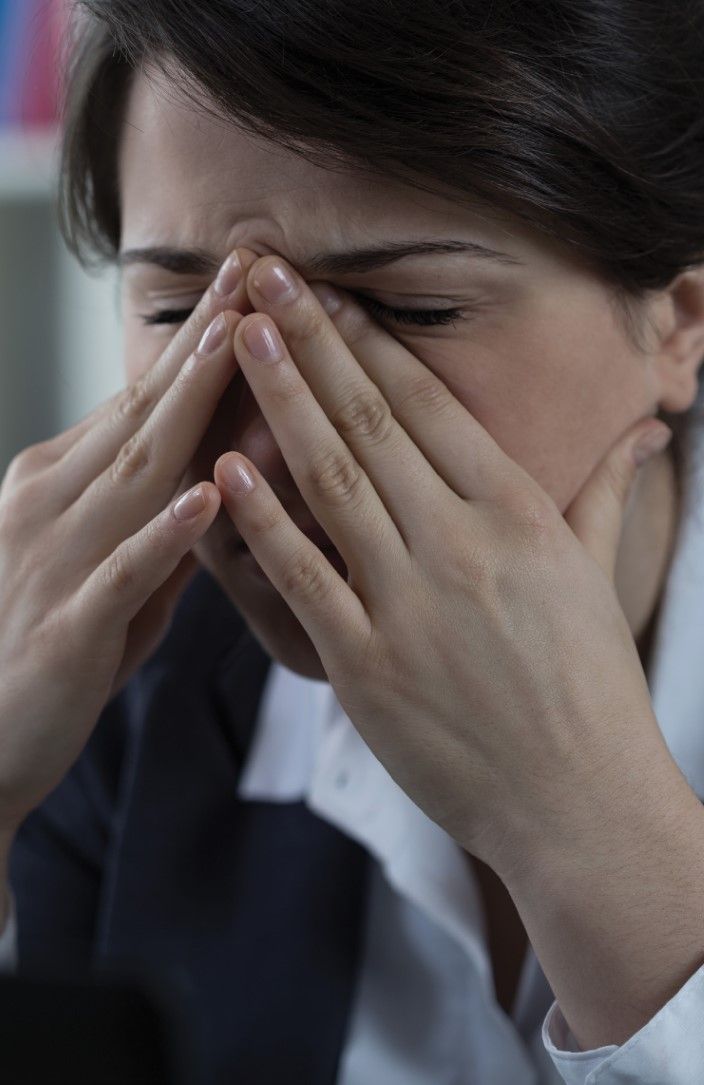
Australian school principals have endured extraordinary levels of stress and disruption in the past few years and, understandably, their mental health has been impacted, write Emily Campbell and Sue Osborne.
For the past 11 years, researchers from the Institute for Positive Psychology and Education (IPPE) at the Australian Catholic University (ACU) and Deakin University have conducted an annual survey to examine the occupational health, safety and wellbeing of Australian school principals.
The latest Australian Principal Occupational Health, Safety and Wellbeing Survey results from 2021 paint a dire picture, with principals facing appalling and increasing levels of abuse and violence compared to previous years.
The ongoing impact of COVID-19, coupled with other traumatic natural events including floods and bushfires, have worsened the risks of long-term damage to principals’ health and wellbeing, according to the researchers.
Independent Education Union Acting Federal Secretary Christine Cooper said the 2021 results were alarming but unsurprising.
“Principals have been burdened with increasingly demanding workloads and complexity in their roles due the implications of the pandemic,” Cooper said.
“Our members, throughout all branches, have worked longer hours, experienced higher levels of stress and uncertainty whilst being subjected to violence and threats at a much higher rate than the general population.
“Principals have been required to act on government and health advice at short notice and manage lockdowns, remote learning and other pandemic consequences like acute staff shortages which is leading to burnout.
“It’s very concerning that a third of principal survey respondents this year triggered the ‘red flag’ warning after completing the questions,” she said.
A “red flag” alert is sent to principals when their responses to the survey indicate they are at high or very high risk in three or more survey categories.
Key research findings
The report confirmed some worrying trends in the rates of principals’ psychological ill-health and raised concerns as to how principals can possibly sustain working under such conditions.
“IEU members understand the increasing pressures on the teaching profession and particularly those in leadership, which is reflected in these results,” Cooper said.
“Concerningly, it suggests school leaders are at a higher risk of burnout than ever before.”
Key findings of the 2021 report included:
- Principals working an average of 55.6 hours per week, which equates to working from 8am to 7.30pm.
- A quarter of school leaders reporting working over 60 hours per week during school term, which equates to working a 12-hour day 5 days per week.
- 62.4 percent of principals reporting partial and/or complete school closures, up from 26.1percent the previous year.
- Principals facing the highest levels of burnout and cognitive stress since the survey began 11 years ago.
- Younger and less experienced school principals are especially impacted and are enduring higher levels of stress and degradation of their health and wellbeing than more experienced school leaders.
- Women principals reporting higher stress resulting from demands at work compared with men.
Offensive behaviours unacceptable
Appallingly, 84 percent of respondents reported being subjected to at least one form of offensive behaviour in 2021, up from 83.5 percent last year.
Half of all school leaders reported being targeted by three or more forms of offensive behaviour in 2021, including threats of violence, physical violence, bullying, cyber-bullying, gossip, slander, teasing and sexual harassment.
During 2020, rates of offensive behaviours against school principals decreased, bucking an alarming growth trajectory.
However, in 2021, the rates increased again, including offensive behaviours perpetrated by parents and carers of students.
Ms Cooper said it was unacceptable that principals are subjected to such frequent offensive behaviour and violence in the workplace simply for doing their job.
“The results indicate Australian school principals experience threats of violence at 5.7 times greater than the general population, actual physical violence 10.1 times greater than the general population and bullying four times greater than the general population.
“This is a severe work health and safety issue and there should be zero tolerance for this behaviour against principals.
“They are skilled professionals and leaders who deserve safe and respectful workplaces,” Cooper said.
Some welcome insights
Despite these confronting results, the report noted there was a silver lining to the tumultuous COVID-19 period for principals and schools.
“Principals were a beacon of hope and showed outstanding leadership at a time when communities faced unprecedented challenges and disruption,” Cooper said.
“School leaders and their deputies adeptly managed the school closures and the transition to remote learning, which would have been even more difficult if not for their dedication and tireless support.”



































































































































